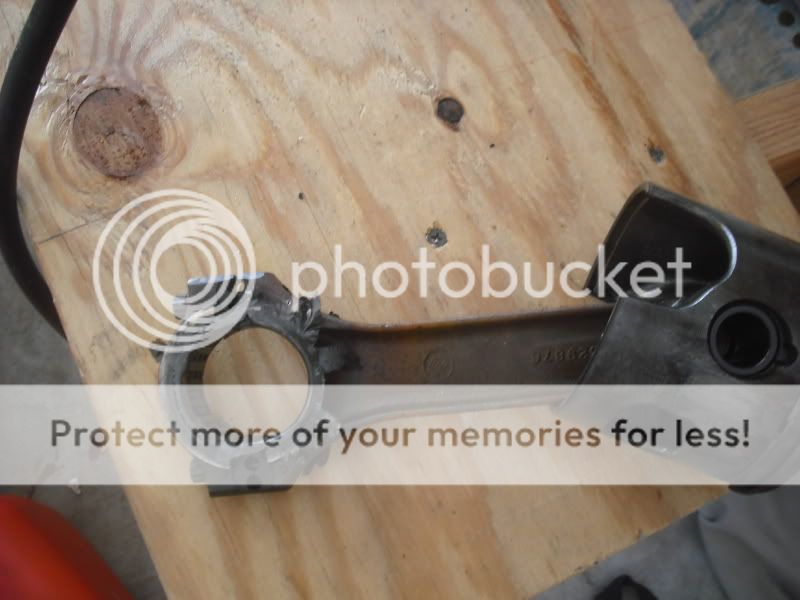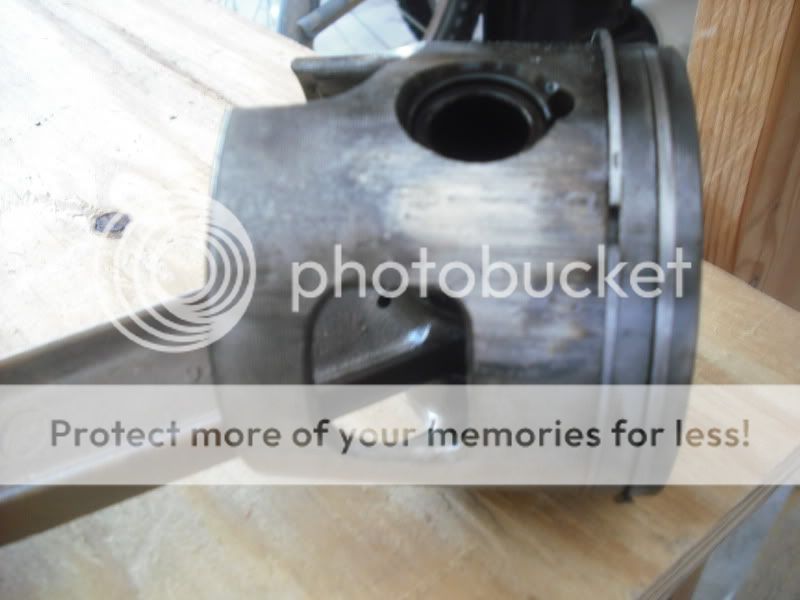THEFERMANATOR
God
You need to find where your compression was leaking. Broken reeds will not cause low compression unless something is jamming them closed and not allowing any air past.

Follow along with the video below to see how to install our site as a web app on your home screen.
Note: This feature may not be available in some browsers.
The pistons should not be "really loose" but they will slighly rock. I had a rattling 86' model 140 looper that still had 125 pounds of cranking compression. It turned out that a series of motors in 86' had carbs that ran the motors too lean, mine was one. In the first 6 months it had lost 400 rpm and sounded terrible. The piston tops and cylinders looked perfect but the lean running had worn the motor out in a couple hundred hours.Guys,
Why is it the pistons are really loose ? Is this normal ? Is it possible the previous owner installed the wrong set of pistons in a re-bore sleeves?
I tried to run the VRO, but while breaking in the new powerhead supplied by OMC, the oiling system on the other motor fouled up and quit working. Thankfully there was 50-1 in the tank for break in. I gave up on the VRO at that point, it alarmed when idling up to the dock after better than 6 hours running without consuming a drop of oil! I've used pre-mix on every motor since. Never another problem with those motors, I believe that aggressive porting must have been very efficient....they really performed and the pair used 15 gph at 4000 rpm with 17p SSTII's. Those 97' model loopers I had ran no where near the early model motors.85 had ALOT of problems with the 140, and 86-early 87 did as well as far as carbs go. If you run the VRO they aren't too bad, but if you pre-mix it makes it worse MUCH WORSE! I spent several days re-jetting my carbs after I swapped from the early style 140 carbs used in 85 only to those that were used in 86 and the first of 87. The domes will be loose, but it's the skirt you have to worry about. If the piston skirts are loose the engine could have decent compression and still not idle. I was gonna mention that your pistons looked awfully loose from your pics, but it's hard to judge from pictures if they are too loose or not. OMC issued a bulletin though to jet up 2 sizes in the mains on the early loopers as the aggressive porting in them caused ALOT of lean out issues.
I tried to run the VRO, but while breaking in the new powerhead supplied by OMC, the oiling system on the other motor fouled up and quit working. Thankfully there was 50-1 in the tank for break in. I gave up on the VRO at that point, it alarmed when idling up to the dock after better than 6 hours running without consuming a drop of oil! I've used pre-mix on every motor since. Never another problem with those motors, I believe that aggressive porting must have been very efficient....they really performed and the pair used 15 gph at 4000 rpm with 17p SSTII's. Those 97' model loopers I had ran no where near the early model motors.


I don't guess you can blame everything on VRO......but were you running the injection or pre-mix? Wrong lower unit??The lower connecting rod number 4 cylinder was almost completely loose on the crank, it spun the bearing 1/2 inch off and froze to the crank, melted the bearings and was at the point to break free!
At this point I will swap in a re-build power head, the previous owner of this engine was one loose cannon base on issues I had with this engine, wrong lower unit now this.
I will post the pictures tonight.


40:1 would be fine for the break in. Also go easy on it for the first 30 minutes or so, she will be running HOT when she is burning the assembly oil off and the initial ring seating.
Ferm,
Thanks for all your help 40:1 it is, I am installing Boyesen Reeds any special tips on the air jets etc ?